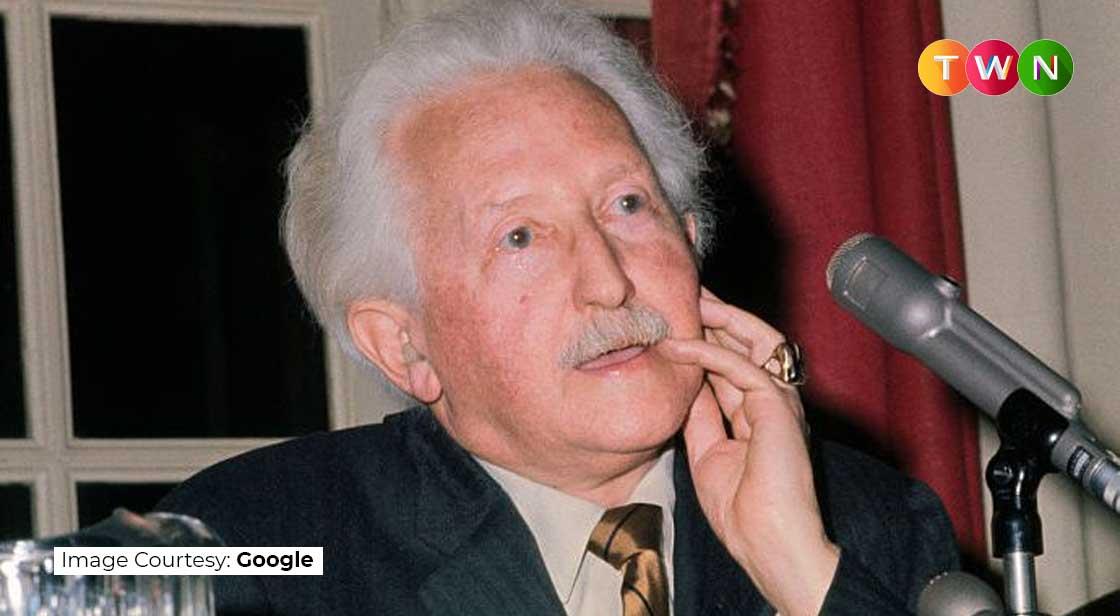
You might come across the name Erik Erikson in the parenting magazines you frequently read. Erikson, a developmental psychologist and child psychotherapist, is well recognised for his psychosocial development theory.
Meaning of Psychosocial Development
The concept of "psychosocial development"
describes how a person's psychological needs interact with societal
expectations (social).
According to Erikson, a person develops through eight stages, each of which builds on the one that came before. At each step, we are faced with a crisis. By overcoming the crisis, we get psychological or character aspects that make us more self-assured and wholesome individuals.
The psychosocial development theory of Erikson offers a framework for analysing a person's development over the course of a lifetime. . Erikson omits discussing how disputes are resolved in detail, which is a fault in all hypotheses. Additionally, he omits to describe how to move from one step to the next.
Regardless, if any of the stages below apply to you or your child, you could find yourself nodding in agreement as you read them.
The Psychosocial Development Process Has Eight Stages
Erikson's Eight Stages of Psychosocial Development are as follows:
Initial Stage: Mistrust vs. Trust
from birth until 12 to 18 months
The first stage of Erikson's hypothesis starts at birth and lasts until your child becomes one and beyond.
You've probably observed how totally dependent your child is on you for all needs, including food, warmth, and comfort. There's no need to hold back on the hugging; show your baby plenty of love in addition to physical care.
By taking care of their fundamental needs, you teach them that they can depend on you. It increases their potential for psychological trust. If your kid feels safe and secure, he or she will be prepared to explore the world.
What occurs if a mistake is made? You could occasionally yell. You might also decide against reading another bedtime story. Erikson is aware that we are all only human, so don't worry.
No one is ever born into a perfect world. Your kid becomes anxious when there's turbulence once in a while. They'll look out for any roadblocks when they're prepared to travel the world.
But what happens when parents consistently behave in an unpredictable and unreliable manner? Without their basic needs being satisfied, children become anxious, uneasy, and suspicious of their surroundings.
Stage 2: Independence vs. Guilt and Shame
ages 18 months to 3 years
When your child starts to establish his or her independence, you've accomplished this milestone. They are adamant about doing so since they are aware of their independence.
An advice: Be wise and allow your child to walk out like this rather than worrying about whether or not their ability to parent will be questioned since they put their shoes on the wrong feet after putting them on themselves.
By this time, your child has established food preferences. Give kids the freedom to choose their own snacks. Give them free rein to choose the shirt they want to wear. (Survival advice: Let them choose between two clothes.) There will be times when their clothing just doesn't seem right. Accept it with a smile since allowing them the autonomy to make decisions will boost their self-esteem.
Another significant milestone has been reached: your youngster is now prepared to start potty training. By becoming more in control of their body functions, they feel more autonomous or independent.
Children that succeed in this stage will be confident in their skills and abilities. Erikson contends that kids who aren't given the freedom to declare themselves (within the confines you set) will experience self-doubt and feelings of inadequacy.
Initiation vs. Guilt in Stage 3
3-5 years of age
These are the preschool years. Your child learns that they may be in charge and make decisions as they engage in social interactions and play with others.
Make sure your child gets many chances to interact with people in order to motivate them to make plans, achieve their goals, and accept responsibility. Within the limitations you've set, permit them to travel the world. Visit the elderly with them and give them chocolates. Make plans for them to play with their friends.
Remember that you can be a playmate as well. Allow your child to serve as the director by playing the teacher, doctor, or salesperson while you take on the roles of the pupil, patient, or patron.
It happens when your child starts asking you a lot of questions. Your little philosopher will wonder where dogs go once they die just as you've settled down to watch the programme you missed because you had to take them to a second playdate. Deeply inhale. By paying close attention as you respond to these questions, you are making an investment in your child's good self-image.
This level involves a lot more than just making the decisions. Through play and social interaction, your child develops self-confidence and learns to enjoy having a sense of purpose.
Children who have domineering parents or parents who don't support them when they make decisions may lack initiative, motivation, and feel guilty.
Tags:
psychosocial development meaning, psychosocial development theory, eriksons eight stages of psychosocial development
Read This Full ARTICLE, Click Here



Comments
Post a Comment